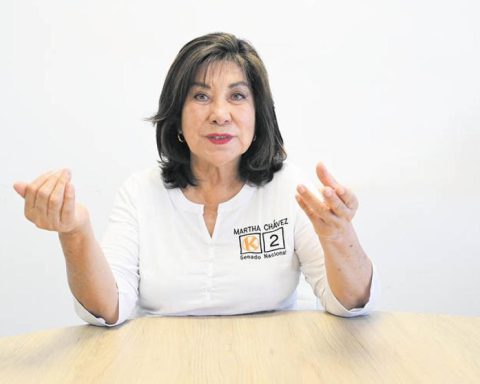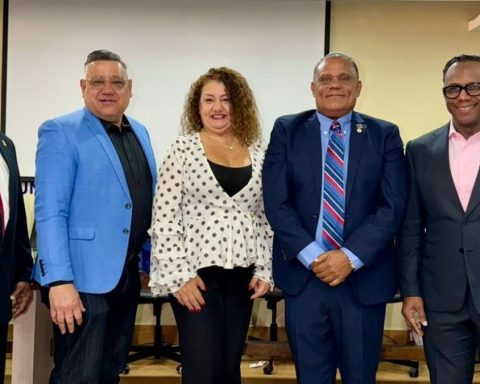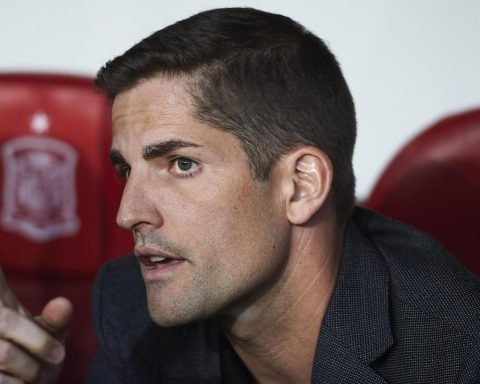
A little over a month and a week after the new government is installed in La Moneda, and thus the start of an unprecedented new political cycle -marked by the defeat in the presidential elections of the two large blocs that have governed since the end of the dictatorship to date–, there is an issue that has marked the decision-making of the President-elect together with those closest to him and that points to the difficulty that, it is known, they are going to have when trying to carry out their program.
Mathematics indicates that, counting only the votes of Approve Dignity, the third is not reached in the Chamber of Deputies, nor in the Senate. And that, if all the votes of the center-left as we know it are added up, that is, the New Social Pact plus the Christian Democracy, although the third is passed, the absolute majority is not reached in the Lower House and only the vote would be tied in the High camera. It is in this framework that, during the last weeks, the different complaints that have emanated from the DC have made noise, for what they accuse as a treatment that “would not correspond” and that would not have to do with appointments to public positions, but more good with shapes. This has become an alarm for some, in the understanding that without a DC that feels totally part of it, the idea of carrying out any type of parliamentary initiative becomes even more difficult. in conversation with The counterthe current deputy and elected senator, Matías Walker, analyzed the present of the community and the conglomerate.
-What is the view that the DC has of the formation of the Government, where they are not considered to be part of either the first or second line?
-We never ask to be part of the Government, we never seek to be part of the Government, therefore, there could hardly be an annoyance for not having been considered. We have been very clear in the sense that we are going to collaborate with the country and with the Government from the places where the citizens elected us. We are the party with the most mayors, we are the party with the most regional councilors and governors.
We have a very strategic position in the Chamber of Deputies, particularly in the Senate, where we give the progressive forces a 25-25 tie. And from that place, what we ask is that we be treated with respect, in consideration of who we are. We feel tributary to that 55 percent that Gabriel Boric achieved in the second round. We support Gabriel Boric in an absolutely disinterested way and we hope that we will be respected in that condition.
-Have they been respected until now according to that condition that you point out?
-There are attitudes that we don’t like, even from allied parties, such as the Socialist Party, when the role of the DC is questioned. I think it’s being unfair in some way. We have not questioned the willingness of the PS to integrate the cabinet, to propose names of ministers, of undersecretaries to the Government.
The formation of the cabinet has been very good, there have been incorporations of names such as Mario Marcel in the Treasury, such as Antonia Urrejola in the Foreign Ministry, which are very positive, and they are also people who come from the socialist world, not to mention Carlos Montes in Housing. But what we are not going to accept is that DC’s support for projects that are important to give greater social justice to the country, such as tax reform, or being able to have a better pension reform, or that in the negotiations for the presidency of the Senate question the candidacy of Francisco Huenchumilla, who was our candidate. A person who has shown signs of pretending and seeking the unity of the forces of progressivism in our country.
-Was there a lack of further reflection or a deeper conversation between the PS and its New Social Pact allies with the DC?
-It could be, I am not part of the party leadership, I don’t know what Álvaro Elizalde has discussed with Carmen Frei, we are in the process of internal elections. Both Joanna Pérez – who is my DC candidate, a woman from the regions – and Felipe Delpin, have been clear in pointing out that we have never sought to be part of the Government.
What is missing here is understanding on the part of the Broad Front, on the part of Approve Dignity and on the part of the PS itself, that without the DC it cannot be done. That the DC is fundamental in the Chamber and in the Senate to carry out the transformations that the country needs in terms of social peace, with agreements and, in this, the role of the DC is fundamental in the National Congress, which is the place where we citizenship, because we never seek to be part of the Government.
-What kind of signals are lacking then, from the future Government, to count one hundred percent with the Christian Democracy in Parliament?
-We do not ask the Government (of Gabriel Boric) for anything, the only thing we ask is respect for the DC, respect for its history. I think that when the President, Gabriel Boric, was asked in ‘Zero Tolerance’ regarding the role of the DC, a little more gratitude was lacking on his part than the unconditional support of the DC, without asking for any position in second return. We do not ask to be loved, but we do ask to be respected.
-Since that episode then one would have to understand the inconvenience that some representatives have shown, such as Francisco Huenchumilla, not participating in a meeting with Giorgio Jackson, or Miguel Ángel Calisto, who positioned himself against the idea that it is a public entity who manages the new quotes.
-No, what happens is that there are different situations. I understand that Francisco Huenchumilla was not summoned to a meeting where the negotiation for the formation of the Senate tables was being discussed, and some went to seek an agreement with the right rather than seek an agreement with the DC. These are things that annoy and, in that sense, our bench leader has only asked for respect for the DC, and that is the minimum.
Regarding the bills in particular, we are going to support all those that we consider good for the country, we are going to fulfill our role also to improve the projects, because that is what Congress is for, to improve the projects that the Government sends, and That is a role that we are going to fulfill with a lot of autonomy, but also with a lot of loyalty to understand that we are tributaries and we feel part of the victory of President Boric in the second round.
We value some things, for example, that Macarena Lobos has been appointed as Undersecretary of the Presidency. What is the meaning of the appointment? She was in charge of converging the programmatic proposals of Gabriel Boric with the programmatic proposals of Yasna Provoste in the second round. She was in charge of the programmatic preparation of Yasna Provoste, and also managed, together with prominent economists who were involved in the second round, to give credibility and seriousness to Gabriel Boric’s programmatic proposals. That partly explains why Gabriel Boric went from the percentage he got in the first round to 55 percent in the second round. It is thanks to the work of people like Macarena Lobos, who brought the program closer to a centrist world, to a moderate world, to a world that voted for the Coalition, for the New Majority, that it feels and we feel part of the triumph.
– Do you understand the appointment of Macarena Lobos as a sign towards the Christian Democracy then?
-We feel it as a signal to all those who loyally supported Yasna Provoste’s candidacy, among whom there are many socialists and PPD.
“We are the party with the most mayors, we are the party with the most councillors, we are the party with the most regional governors and with the greatest territorial force”
-What does the DC have to offer today, either to the Government, to the citizenry, that differentiates them from other forces in the sector?
-I believe that the DC, throughout its history, every time it has governed, is a guarantee of changes with social peace, with social stability, and with agreements. That is the role that the DC can play from the places where the citizens have placed us, particularly the National Congress, particularly in the Senate, where we are going to be a very relevant ruling force.
And we make available to the Government our willingness to reach agreements, to carry out well-prepared reforms that are good for the country, and to generate changes with social peace and stability, which is the guarantee that the DC has always given whenever It has had to play a relevant role in public policies in the country.
-And how do you explain the jibarization that they have been suffering over time?
-Here you have to put the ball on the floor. It is true that the traditional parties in general have had wear and tear over time, but, as I say, we are the party with the most mayors, we are the party with the most councillors, we are the party with the most regional governors and with the greatest territorial strength. We had a setback in the constituent elections, where, parenthetically, we played ourselves so that the independents could compete in better conditions than the members of the parties, we always said that this was without a calculator, out of conviction, to legitimize the constituent process .
In the second round there was a revaluation of the political center, Camila Vallejo herself pointed out, in a recent interview, that the next government is going to be one of the center-left. That headline would have been unthinkable in the Approve Dignity campaign in the first round. You see that this diagnosis is so relevant and so true, that there has been a rapprochement with the center, that the (incoming) government itself defines itself as center-left. Good for the country, good for the viability of the reforms that are intended to be made.
We want the Government of President Boric to do well, and I also have a lot of personal affection for him. We are always going to present our disagreements with great vision, and in a very direct and frank way in front of the country and in front of our electorate.
-With a view to the second round in the election of the new leadership in your party, you are on the side of the candidate Joanna Pérez, what can make the difference in the path of the DC, and in its relationship with the Government, if Is it that deputy Pérez won, or if Mayor Felipe Delpin did, in your opinion?
-Joanna Pérez has been very clear: we are going to collaborate with the Government of President Boric, so that it goes well, so that his reforms are viable, we are going to perfect everything that needs to be perfected. But there is no doubt that politics is made in Congress and, therefore, that we can have a woman from the regions, who is a deputy from the province of Arauco, I think it is important that the president of the DC be a deputy, be in Congress , where the DC can influence through its parliamentarians.
-How much do you think the agreements with the current government, and contrary to the opposition, influenced the way in which a sector of the left looks at the Christian Democracy today?
-What happens is that the DC has always had a vocation for agreements, to put the good of the country ahead of all things. Understanding over confrontation. Gabriel Boric himself was criticized when he played it for the agreements, not only was he criticized, he was physically attacked, he was publicly founded by the ultra-left. Gabriel Boric himself attended without hesitation to be part of the agreement table for children in the Government of President Piñera. Therefore, we are not going to accept that the DC be criticized for something that the leader of Approve Dignity himself did, who today is the President-elect of the Republic. We are very happy that he has played that role, because we understand that this is the role that great leaders have to play.

















